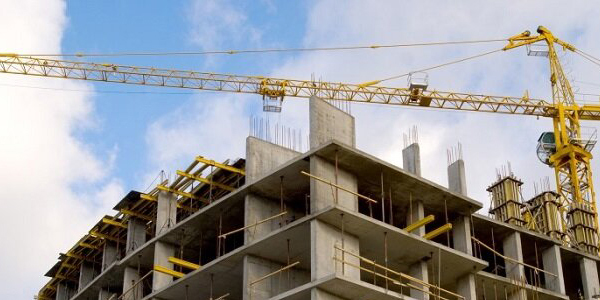Source: FOR Construction PROS.com As business owners process the news from the Federal Reserve, which decided…

Infrastructure Investment Set To Drive Construction Growth
- Source: World Construction Today
According to a recent analysis by Siemens, a German multinational conglomerate, the global construction industry should prepare for a possible upturn.
Siemens, renowned for its technological systems and projects, conducted research predicting a future boom in the construction sector. Despite recent challenges, such as supply chain disruptions and inflation, several indicators suggest a positive outlook ahead.
The Building Cost Information Service (BCIS) forecasts a 21% growth in total new work output over the next five years.
In particular, the civil engineering sector has shown strong financial performance in the past five years, with several firms experiencing significant share price increases and some even doubling in value.
This expected surge will likely boost demand for plant-hire services in areas such as excavation, pumping, piling, bulldozing, lifting, and earth-moving equipment.
Stakeholders in the plant-hire sector are encouraged to seize this opportunity and prepare for increased business activity.
Major construction companies positioned to benefit from this potential upturn include Vinci SA, Bechtel Corporation, China State Construction Engineering Corporation, Bouygues Construction, and Skanska AB.
Several factors are driving this anticipated upturn. Many governments globally are increasing investments in infrastructure projects as part of economic stimulus plans. For example, the US Infrastructure Investment and Jobs Act allocates significant funding for critical infrastructure like roads and bridges.
Key factors contributing to this anticipated upturn include:
- Investment in Infrastructure
- Demand in Housing
- Sustainable building practices
- Technology embrace
- Economic resurgence
- Less interest rates
- Infrastructure that’s ageing
- Growth in population
The construction industry’s cyclical nature often reflects broader economic trends. As developed markets recover and emerging economies continue to urbanize, a ripple effect is expected across the global construction landscape.
Anticipated key developments include:
Techno Integration: The upturn is expected to accelerate the adoption of cutting-edge technologies like Building Information Modelling- BIM, drone surveying, and prefabrication techniques, enhancing efficiency and reducing costs.
Development in Infra: There could be a surge in large-scale projects such as transportation networks, energy facilities, and urban redevelopment initiatives.
Focus on Sustainability: Growing environmental concerns may push the industry towards more sustainable practices, increasing demand for green building materials, energy-efficient designs, and eco-friendly construction methods.
Labour Market & Skills Gap: Increased construction activity may exacerbate existing skills shortages, potentially driving up labour costs and prompting investment in training and automation.
Rising Market Opportunities: Rapid urbanization in developing countries is likely to create substantial opportunities for both local and international construction firms, particularly in residential and commercial sectors.
Reconfiguration in terms of Supply Chain: Global supply chains might undergo significant restructuring to meet increased demand and mitigate risks exposed by recent disruptions, potentially leading to more localized production of construction materials.
M&As: The positive outlook may drive consolidation within the industry as firms seek to expand their capabilities and geographical reach through strategic acquisitions.
Implications financially: The predicted upturn is expected to have significant financial ramifications. Construction firms may see improved profit margins, and ancillary industries such as building materials, equipment manufacturing, and real estate could also benefit from the positive momentum.
Regulatory Spectrum: Increased activity might prompt regulatory bodies to review and update building codes and standards, potentially leading to more stringent safety and quality requirements.
As the industry progresses, sustainability, digitalization, and adaptability will likely be key themes shaping its future. Construction firms which can go on to effectively integrate these elements into their operations may as well be best positioned to thrive in the evolving landscape.
Roland Busch, President and CEO of Siemens AG, stated that they have the right strategy, technology, and team to support customers in becoming more competitive, resilient, and sustainable in the evolving construction industry.
Disclaimer:
The images and content are sourced from the internet. If there is any infringement, please contact us for removal.


